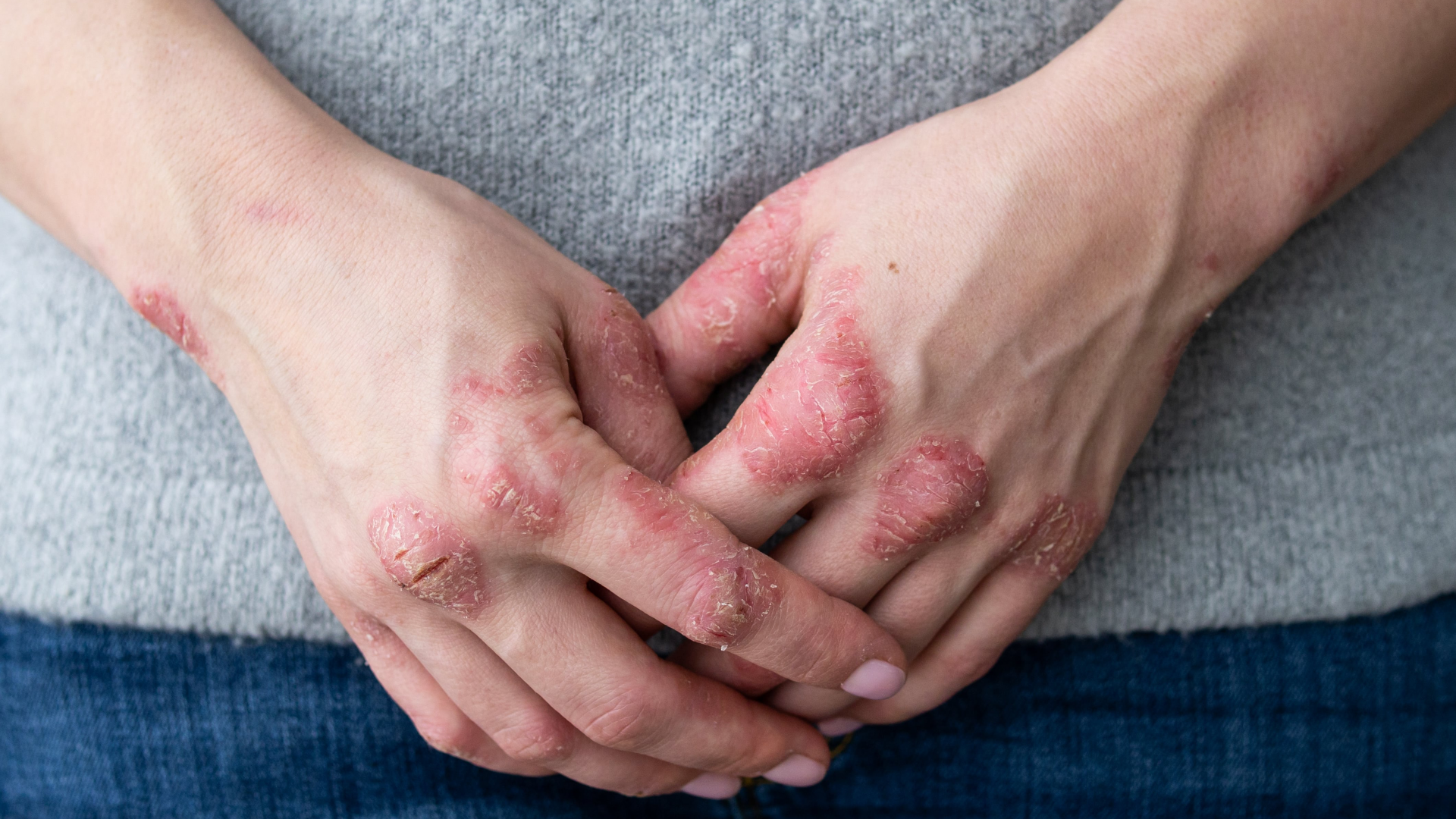AbbVie’s Skyrizi hits the spot in refractory psoriasis

New data with AbbVie’s IL-23 inhibitor Skyrizi suggests it can alleviate symptoms in psoriasis patients who don’t respond well to other biologics for the skin disease, including widely-used IL-17 inhibitors.
The new results, reported at the American Academy of Dermatology annual meeting, suggest that Skyrizi (risankizumab) treatment could be used to ‘rescue’ patients with moderate to severe psoriasis who are still getting symptoms despite at least six months’ treatment with two blockbuster IL-17 therapies – Novartis’ Cosentyx (secukinumab) and Eli Lilly’s Taltz (ixekizumab).
The open-label phase 3b study showed that 56.3% of patients who received Skyrizi, without a washout period, achieved the week 16 primary endpoint of reduced signs and symptoms of psoriasis measured using the sPGA 0/1 scale.
After one year taking AbbVie’s drug, almost two-thirds of patients (63%) had achieved clear or almost clear skin, with 19.6% having no skin lesions at all week 16, rising to 26.2% after a year.
Skyrizi – partnered with Boehringer Ingelheim – is already enjoying rapid growth from its approved uses in psoriasis, psoriatic arthritis and Crohn’s disease, with sales rising 76% to $5.2 billion last year, fuelled by clinical data showing superiority to Cosentyx in head-to-head psoriasis studies. It was first launched in 2019.
That efficacy boost means it has already overtaken its IL-17 rivals, and could now gather additional momentum in patients who don’t get a good result from Novartis and Lilly’s drugs. Category leader Cosentyx made $4.8 billion last year but saw sales decline 9% in the final quarter, while Taltz grew 12% to $2.2 billion.
“Advanced therapies represent an important option in the treatment of plaque psoriasis, but as a physician, it’s critically important to continually assess if patients are having an optimal response to treatment, as residual psoriasis can still have a significant impact on a patient’s life,” commented study investigator Prof Richard Warren from the University of Manchester and Norten Care Alliance in the UK.
He added that the data contributed “to the whole of evidence supporting risankizumab use in moderate to severe plaque psoriasis.”
AbbVie, meanwhile, is still building out the indications for Skyrizi, and is hoping to show efficacy in phase 3 ulcerative colitis trials in the coming months.
It is also running a head-to-head study with another big-selling psoriasis therapy – Amgen’s oral PDE4 inhibitor Otezla (apremilast) – which made $2.3 billion in sales last year but is starting to come under pressure from Bristol-Myers Squibb’s first-in-class TYK2 inhibitor Sotyktu (deucravacitinib).













